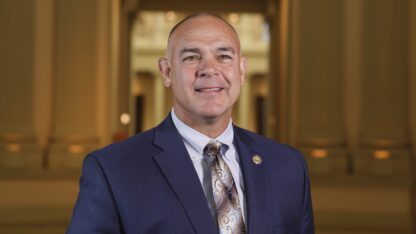Just when the insurance market was looking calmer for the exchange in Georgia and other states, another event has shaken things up.
In a weekend announcement, the Trump administration said it’s freezing payments under an Affordable Care Act program aimed at protecting insurers who have sicker patients from financial losses.
The Centers for Medicare & Medicaid Services said a federal court ruling that was handed down in February would force it to suspend what are known as risk-adjustment payments, worth about $10.4 billion for 2017.
On Friday, the Georgia insurance department released proposed rate hikes for the state’s 2019 insurance exchange that reflected a greater stability than in the previous year. The proposed rates — ranging from about 2 percent to almost 15 percent — were modest compared with the 2018 Georgia exchange hikes, which exceeded 50 percent for the four participating health plans.
The frozen payments are part of an ACA program designed to help balance the insurance markets when some insurers inevitably got stuck with sicker, more costly patients.
Now insurance industry officials are saying that with the administration action, the carriers could be forced to raise premiums higher to compensate. (In Georgia, insurers can change their proposals until Aug. 22, the insurance department deadline for approval.)
Graham Thompson, executive director of the Georgia Association of Health Plans, said Monday that health insurers in the state are trying to evaluate the freeze.
“I don’t want to overreact [right now], but it will have an impact,’’ Thompson said. “This was very unexpected.”
The administration said it’s appealing the court ruling, which came in response to a lawsuit over the risk-adjustment program. The decision most immediately affects payments under the program in 2017 that were to be made this year. (In January, a federal district judge in Massachusetts upheld the method used by the government to calculate risk adjustment payments.)
The Blue Cross Blue Shield Association said it was “extremely disappointed” with the administration’s action, the Associated Press reported.
The Trump administration’s move “will significantly increase 2019 premiums for millions of individuals and small business owners and could result in far fewer health plan choices,” association President Scott Serota said in a statement. “It will undermine Americans’ access to affordable coverage, particularly those who need medical care the most.”
America’s Health Insurance Plans, an industry trade group, said in a statement that it is “very discouraged” by the Trump administration’s decision to freeze payments. “Costs for taxpayers will rise as the federal government spends more on premium subsidies,” the group said.
The effect of the cutoff will be complex, Bloomberg News reported. In the short term, it will likely favor health insurers that have drawn healthier, less costly customers. Under the risk-adjustment program, those insurers make payments into a pool that is redistributed to plans with sicker, more costly patients. As a result, some plans that had already been doing better financially will benefit from not having to make the payments.
The increased stability for the 2019 Georgia market was reflected by the proposed expansion of Ambetter and of Blue Cross and Blue Shield of Georgia into more counties in the exchange. All 159 counties will have an exchange health plan to choose under the proposed filings, state insurance officials said Monday.
The insurance exchanges were created by the Affordable Care Act, the 2010 health law also known as Obamacare. They offer health insurance plans for individuals and families who don’t have job-based or government coverage. About 480,000 people bought coverage this year through Georgia’s exchange, which like most state exchanges is run by the federal government.
Some newer insurers have criticized the risk-adjustment program, saying it benefits more established insurers that have the resources to identify more of their customers’ ailments. The court decision that led CMS to halt payments resulted from a lawsuit by an insurer in New Mexico that said the program’s rules were arbitrary and unfair, Bloomberg reported.
The court decision was “good for small and new health insurance companies, and therefore to anyone who purchases health insurance,” said Dr. Martin Hickey, the founder and former CEO of that insurer, New Mexico Health Connections, Bloomberg reported. “Getting this program fixed will lead to a more stable market. It will attract more insurance companies because the risk adjustment will be more predictable and this increased competition will reduce rates.”
The ACA is already facing a degree of uncertainty.
One factor in this uncertainty is the official end next year of the ACA’s requirement that people have health insurance, which raises the likelihood that some customers will skip buying coverage in an attempt to save money. Another factor is the White House’s decision to open the door to certain alternative types of coverage, which insurers say could pull healthy enrollees out of ACA plans.
In addition, Georgia and 19 other states are challenging the ACA in court. The administration has asked the courts to strike down key elements of the law, including the current protections for consumers with pre-existing medical conditions.
Andy Miller is editor and CEO of Georgia Health News










